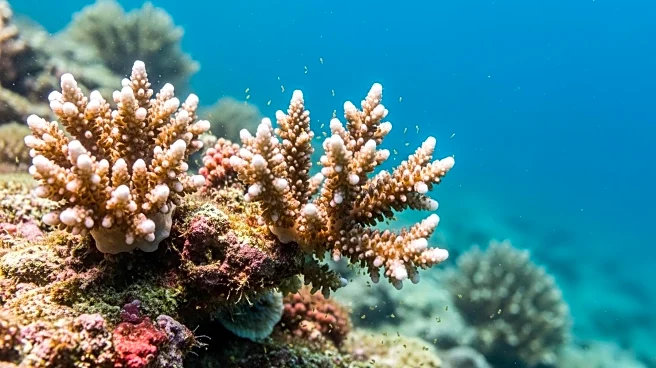What is the story about?
What's Happening?
A study has found that ocean warming poses a threat to Prochlorococcus, a microorganism crucial to Earth's oxygen supply. Prochlorococcus, the most abundant photosynthetic organism, thrives in warm, nutrient-poor tropical waters. However, rising ocean temperatures could significantly impact its productivity. The study analyzed data from natural environments, revealing that Prochlorococcus struggles at temperatures above 30°C, with cell division rates dropping dramatically. Simulations predict a decline in productivity by up to 51% in tropical regions under severe warming scenarios, potentially altering its geographic distribution.
Why It's Important?
Prochlorococcus plays a vital role in the marine food chain and oxygen production, making its decline a significant concern for global ecosystems. A reduction in its productivity could disrupt marine biodiversity and affect oxygen levels, impacting various life forms, including humans. The potential shift in its habitat towards polar regions may lead to ecological imbalances, as other microorganisms like Synechococcus could thrive in warmer waters. Understanding these changes is crucial for predicting and mitigating the effects of climate change on marine life and global oxygen supply.
What's Next?
Further research is needed to explore the resilience of Prochlorococcus and identify thermotolerant strains that may withstand higher temperatures. Monitoring ocean temperature changes and their impact on marine microorganisms will be essential for developing strategies to preserve biodiversity and maintain oxygen levels. The study's findings could inform climate policy and conservation efforts, emphasizing the need for global cooperation to address the challenges posed by ocean warming.















